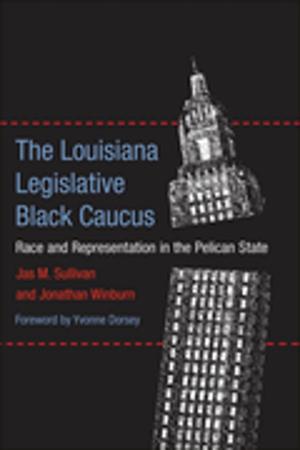Our Minds on Freedom
Women and the Struggle for Black Equality in Louisiana, 1924-1967
Nonfiction, Social & Cultural Studies, Political Science, Politics, Civil Rights, Social Science, Gender Studies, History, Americas, United States| Author: | Shannon Frystak | ISBN: | 9780807146750 |
| Publisher: | LSU Press | Publication: | December 1, 2009 |
| Imprint: | LSU Press | Language: | English |
| Author: | Shannon Frystak |
| ISBN: | 9780807146750 |
| Publisher: | LSU Press |
| Publication: | December 1, 2009 |
| Imprint: | LSU Press |
| Language: | English |
Traditionally, literature on the civil rights movement has highlighted the leadership of ministerial men and young black revolutionaries like the Reverend Martin Luther King, Jr., Stokely Carmichael, and Malcolm X. Though recent studies have begun to explore female participation in the struggle for racial justice, women have generally been relegated to the margins of civil rights history. In Our Minds on Freedom, Shannon Frystak explores the organizational and leadership roles female civil rights activists in Louisiana assumed from the 1920s to the 1960s, highlighting a diverse group of courageous women who fought alongside their brothers and fathers, uncles and cousins, to achieve a more racially just Louisiana.
From the Depression through World War II and the postwar years, Frystak shows, black women joined and led local unions and civil rights organizations, agitating for voting rights and equal treatment in the public arena, in employment, and in admission to Louisiana's institutions of higher learning. At the same time, black women and white women began to find common ground in organizations such as the YWCA, the NAACP, and the National Urban League. Frystak explores how women of both races worked together to organize the 1953 Baton Rouge bus boycott, which served as inspiration for the more famous Montgomery bus boycott two years later;in the day-to-day struggle to alter the system of unequal education throughout the state; and in the fight to integrate New Orleans schools after the 1954 Brown decision.
In the early 1960s, a new generation of female activists joined their older female counterparts to work with organizations such as the NAACP, the Congress of Racial Equality (CORE), and a number of local grassroots civil rights organizations. Frystak vividly describes the very real dangers they faced canvassing for voter registration in Louisiana's rural areas, teaching in Freedom Schools, and hosting out-of-town civil rights workers in their homes.
As Frystak shows, the civil rights movement allowed women to step out of their socially prescribed roles as wives, mothers, and daughters and become significant actors, indeed leaders, in a social movement structure largely dominated by men. Our Minds on Freedom is a welcome addition to the literature of the civil rights movement and will intrigue those interested in African American history, women's history, Louisiana, or the U.S. South.
Traditionally, literature on the civil rights movement has highlighted the leadership of ministerial men and young black revolutionaries like the Reverend Martin Luther King, Jr., Stokely Carmichael, and Malcolm X. Though recent studies have begun to explore female participation in the struggle for racial justice, women have generally been relegated to the margins of civil rights history. In Our Minds on Freedom, Shannon Frystak explores the organizational and leadership roles female civil rights activists in Louisiana assumed from the 1920s to the 1960s, highlighting a diverse group of courageous women who fought alongside their brothers and fathers, uncles and cousins, to achieve a more racially just Louisiana.
From the Depression through World War II and the postwar years, Frystak shows, black women joined and led local unions and civil rights organizations, agitating for voting rights and equal treatment in the public arena, in employment, and in admission to Louisiana's institutions of higher learning. At the same time, black women and white women began to find common ground in organizations such as the YWCA, the NAACP, and the National Urban League. Frystak explores how women of both races worked together to organize the 1953 Baton Rouge bus boycott, which served as inspiration for the more famous Montgomery bus boycott two years later;in the day-to-day struggle to alter the system of unequal education throughout the state; and in the fight to integrate New Orleans schools after the 1954 Brown decision.
In the early 1960s, a new generation of female activists joined their older female counterparts to work with organizations such as the NAACP, the Congress of Racial Equality (CORE), and a number of local grassroots civil rights organizations. Frystak vividly describes the very real dangers they faced canvassing for voter registration in Louisiana's rural areas, teaching in Freedom Schools, and hosting out-of-town civil rights workers in their homes.
As Frystak shows, the civil rights movement allowed women to step out of their socially prescribed roles as wives, mothers, and daughters and become significant actors, indeed leaders, in a social movement structure largely dominated by men. Our Minds on Freedom is a welcome addition to the literature of the civil rights movement and will intrigue those interested in African American history, women's history, Louisiana, or the U.S. South.















